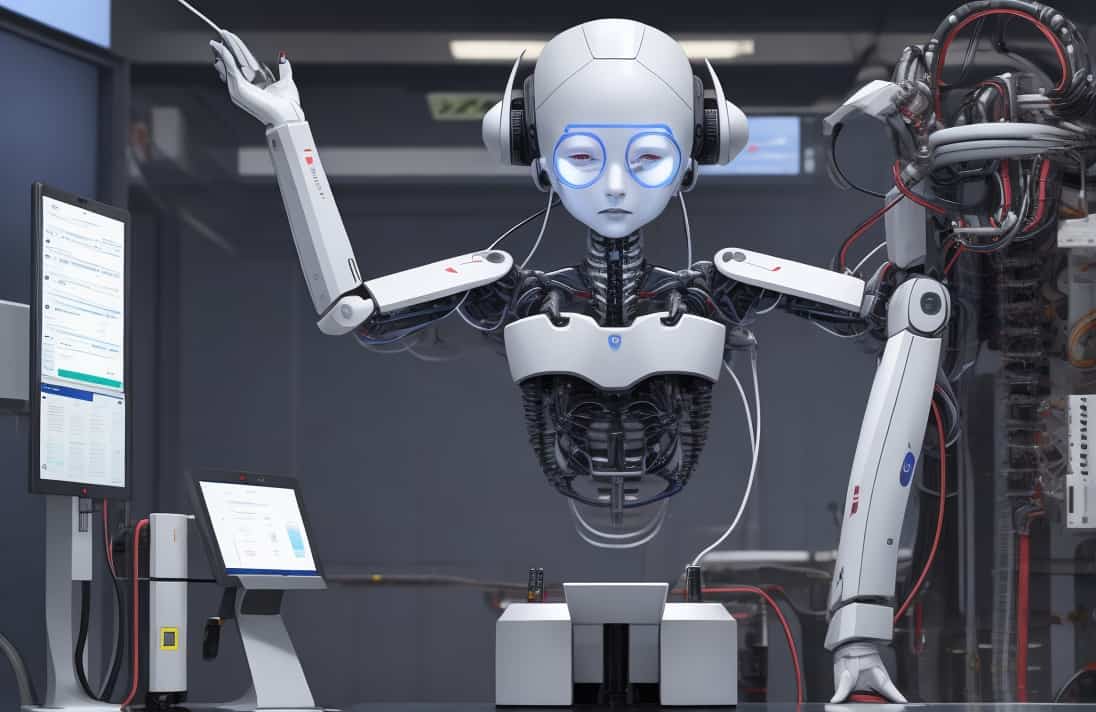Generative AI’s Impact on Jobs

- August 22, 2023
- allix
- AI in Business
GENEVA (ILO News) – Recent research from the International Labour Organization (ILO) suggests that the advent of Generative Artificial Intelligence (AI) is poised to augment job roles rather than obliterate them, primarily by automating specific tasks rather than entirely replacing human functions.
In the study titled “Exploring the Nexus of Generative AI and Employment: An In-depth Global Analysis,” it is proposed that most professions and sectors face only partial exposure to automation. They are more prone to witnessing a symbiotic relationship with the emerging wave of Generative AI technologies, like the case of chatGPT. Consequently, the transformative impact of this technological surge is projected to manifest as a shift in job dynamics, focusing on aspects like work intensity and self-governance.
Among the various categories examined, administrative tasks emerge as the most technologically vulnerable, with roughly a quarter classified as highly susceptible and over fifty percent as moderately so. Contrarily, professions such as managerial, professional, and technical roles exhibit only a minor percentage of highly vulnerable tasks, with approximately one-fourth displaying medium vulnerability.
The study, spanning across global landscapes, underscores the divergent consequences faced by nations at different developmental stages. These disparities are linked to prevailing economic structures and extant technological disparities. In high-income countries, about 5.5 percent of total employment faces potential automation, while in low-income economies, a mere 0.4 percent encounters such risks. On the flip side, the potential for augmentation appears nearly uniform across nations. This insight implies that, subject to appropriate policy frameworks, developing countries could harness substantial benefits from this innovative wave of technological progression.
Gender-based disparities in the implications of Generative AI are also anticipated, with female employment being doubly affected by automation compared to their male counterparts. This discrepancy traces back to the overrepresentation of women in administrative roles, particularly in middle and high-income nations. Given that administrative positions historically serve as a significant avenue for female employment during economic development, the advent of Generative AI may result in the omission of certain administrative roles in less affluent countries.
Ultimately, the research concludes that the socio-economic repercussions of Generative AI’s integration hinge on the effective management of its dissemination. It emphasizes the necessity of crafting policies that facilitate a systematic, equitable, and participatory transition. Empowering the workforce through engagement, skills enhancement, and robust social safeguards stands crucial in steering this transformation. Otherwise, the prospect arises wherein only a select few adept countries and market participants reap the rewards of this novel technology.
The authors underscore that the “outcomes of this technological transition remain fluid. It’s the choices made by humans to assimilate such innovations that will determine the course, and it is humanity’s responsibility to navigate this transformative journey.”
Categories
- AI Education (39)
- AI in Business (65)
- AI Projects (87)
- Research (107)
- Uncategorized (5)
Other posts
- Medical Treatment in Brazil: Advanced Healthcare, Skilled Specialists, and Patient-Focused Care
- Dental Treatment in China: Modern Technology, Skilled Dentists, and Comprehensive Care for International Patients
- Plastic Surgery in China: Advanced Aesthetic Medicine Supported by Precision, Innovation, and Skilled Specialists
- Ophthalmology in China: Advanced Eye Care Guided by Innovation, Expertise, and Patient-Focused Treatment
- Finding Care, Calm, and Confidence: Why Patients Are Looking Toward Beroun in the Czech Republic
- Choosing Health, Energy, and a New Future: Exploring Gastric Bypass in Diyarbakır, Turkey
- When Facial Hair Tells Your Story: Considering a Beard Transplant in Phuket, Thailand
- When Prevention Becomes Power: Understanding Liver Cirrhosis Risk and Modern Screening Approaches in Spain
- When the Abdomen Signals Something Serious: Understanding Abdominal Aortic Aneurysm and Getting Expert Evaluation in Islamabad
- When Back Pain Becomes More Than “Just Pain”: Understanding the Need for Microdiscectomy
Newsletter
Get regular updates on data science, artificial intelligence, machine



